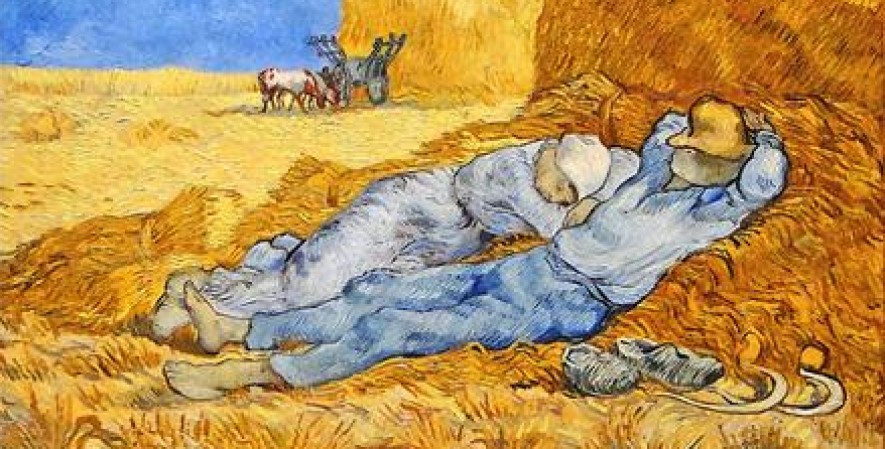Wearing Another’s Skin

I’ve seen him before: a hulking man probably younger than he looks, dressed in stained layers, even in the summer. He paces outside a convenience store, stops and turns as if a shadow has called his name. His countenance is rage, barely mastered.
I always figure he is going to roar at me or ask for spare change. His base is in one of Erie’s rough areas, so being panhandled or hassled wouldn’t be unexpected. His bench is at the intersection 30 yards away. He sleeps on his side.
My mother raised me to avoid such neighborhoods. In fact, there’s one street in Erie that she refused to travel, and that’s where I was this morning, buying my newspaper and iced tea.
Getting back in my car, I glanced his way and thought, “Just like me.” Not the homelessness, thankfully. Not the dirty clothes, not what I take to be the fury on simmer. I’ve lost some weight recently, but remain hulking.
Still, I’m a lot like this guy. I want to be loved and understood. I want to be comfortable, sheltered, clothed and fed. I want a mind that functions, friends to laugh with and a decent portion of gladness.
The American Tibetan Buddhist nun Pema Chodron deserves credit for “just like me.” She told Oprah Winfrey about it, and I overheard. Admittedly, you probably don’t need to engage in this contemplative practice with folks you love, though it can’t hurt. No, realistically, Chodron’s phrase has to do with those you find objectionable, often strangers.

But even the first woman ordained a Buddhist monk in the United States didn’t come up with “just like me.” In the novel To Kill a Mockingbird, novelist Harper Lee famously put an echo of the notion into Atticus Finch’s mouth. His daughter has had a rough first day of elementary school and disapproves of her teacher. “Well, maybe she was just nervous,” Gregory Peck explains in the film adaptation. “After all, it’s her first day, too, teaching school and being new here.” Then comes Lee’s gem: “Just learn a single trick, Scout, and you’ll get along better with all kinds of folks. You never really understand a person until you consider things from his point of view, until you climb into his skin and walk around in it.”
In the novel’s last chapter, Scout recalls the lesson: “Atticus was right. One time he said you never really know a man until you stand in his shoes and walk around in them.”
Delivered in Peck’s legendary baritone, empathy comes across as warm and folksy, but American poet Walt Whitman knew better. Of his experience nursing Civil War soldiers, he writes in Leaves of Grass, “I do not ask the wounded person how he feels, I myself become the wounded person.”
All of this imagery points toward pain. Saying “just like me” demands that I set aside the fine appointments of my days and recognize that but for bad luck, an unfortunate decision or the curse of mental illness, I might have no roof to call my own. Climbing into another person’s skin implies that I first peel off my own. To become the wounded soldier—or the person I’m inclined to hate—means that I receive another’s gut shot, that I dare to trade places with a broken soul, that I claim a sister or brother’s graceless desert as my own.
Empathy is easy on occasion, but most often it’s exasperating, like a riddle that’s beyond my patience or capacity. Anyway, stewing in ill will is easier than reflection and over time gets to be addictive. And prior to my self-explication, the person who has triggered my brain stem is nothing like me, damn it.
 Northern Mockingbird (Credit: Wikipedia)
Northern Mockingbird (Credit: Wikipedia)
Walking for a time in someone’s stilettos or loafers doesn’t mean that I condone a single chapter of her or his story. On the other hand, until I put into practice the raw, chafing wisdom of Chodron, Lee and Whitman, I’ve no business peddling criticism. In fact, if I review other people’s lives while still abiding in my own skin, I’m apt to kill a mockingbird.
“Mockingbirds don’t do one thing but make music for us to enjoy,” Atticus Finch says. “They don’t eat up people’s gardens, don’t nest in corncribs. They don’t do one thing but sing their hearts out for us.”
The older I get, the more I’m convinced that most people just want to be mockingbirds, in a fashion: To do no harm and sing their hearts out. Of course, if my supposition is true only of folks I love, then it isn’t true at all.
